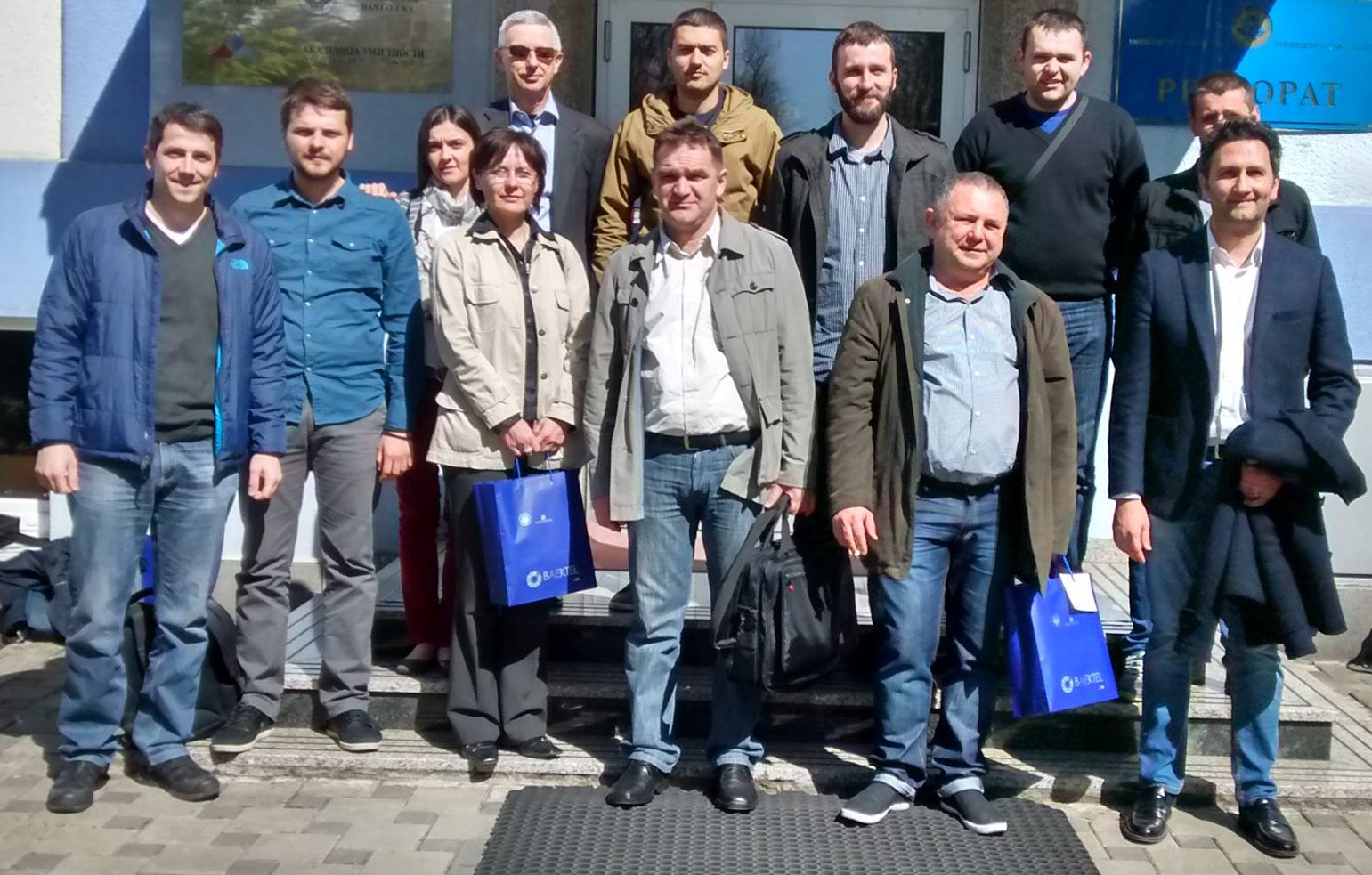Technical and Monitoring meeting, Banja Luka, April 20-21, 2015
MEETING SUMMARY – Technical and Monitoring meeting, Banja Luka, April 20-21, 2015A two days meeting was held Banja Luka, on April 20-12, 2015. The first they was dedicated to technical issues with the participation of all WB partners as well as the representative of the coordinator. On the second day a monitoring visit of the Erasmus+ Tempus office of Bosnia and Herzegovina took place also with the participation of partners from other WB countries and representative of the project coordinator.
The meeting was opened with a welcome address by the Dean of the Faculty of Architecture, Civil engineering and Geodesy, professor Milenko Stanković and Vice-rector for International cooperation at the University of Banja Luka, professor Valerija Šaula.
The partners reviewed the results of the activities of WP2 presented by representatives of Banja Luka, the WP2 leading institution. The conclusion was that the majority of activities have been completed successfully except equipment purchase for some institutions. This is due to the fact that very strict rules have been imposed in the last Tempus call regarding the “rule of origin” which presents considerable problems for some WB partners.
As time resources needed for developing OERs were identified as the major cost driver, a detailed strategy was presented for cutting the production and distribution costs by involving students in creation of OER and with the use of free services. It has been suggested that given the time needed for production of single MOOC, modular course development should be used.
A lot of attention was given to involving more industrial partners in the project, thus contributing to the sustainability of the project. It was suggested that HE partners should support industrial partners in developing educational resources in order to ensure their quality, and that exemplary courses should be developed attract industrial partners and show practically what the content should look like on the official website. It was agreed that practical guidelines (in form of a manual) for creating and publishing different types of OER should be produced.
Two models for BAEKTEL network were considered. The model which assumes that all partners use a common edX platform where all finished OERs will be available publicly was accepted. Other nodes at partner institutions would be used for OER development and testing while UB would be responsible for maintaining the common node server.
The representative of the coordinator discussed and clarified some managerial and financial issues, focusing on the submission of Intermediate Report to European Commission about the planned and realized activities within the project due in June. A distribution of tasks for preparing the intermediate report among partners was done and deadlines were set.
During the monitoring visit a generally positive assessment of the current project activities was given by the representative of the Erasmus+ Tempus office of Bosnia and Herzegovina. However, a concern was also expressed regarding the sustainability and quality assurance. Partners from Iasi are expected to create the guidelines for quality assurance, as soon as possible. Regarding sustainability it was concluded that more universities and companies should be invited to join the BAEKTEL network and contribute with their materials and resources that would be useful to students, which would have beneficial effects on both the quality and the sustainability of the project.
Photo gallery is available on official facebook page [link].



